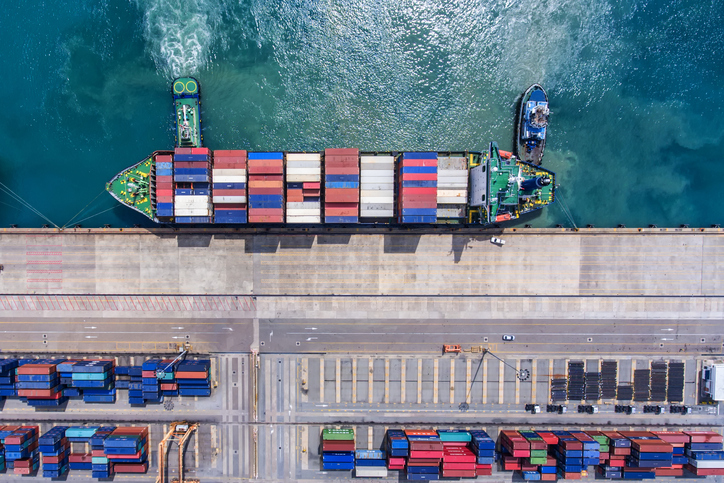Exporting to China? What Thai SMEs need to know
Global trade growth has been slack in recent years mainly due to a slowdown in the world’s giant economies, such as China and the US. Slow growth is widely perceived as the “new normal”, which implies an acceptable new standard rate of growth. Thailand is no exception. The nation's exports, the one remaining hope for GDP growth, are also sluggish. Having generated double-digit export growth for nine consecutive years during 2003-2011 (except 2009 when affected by the U.S. subprime crisis), Thai exports are currently facing low growth and the prospect of negative growth of -5.8% in 2015.
Author: EIC | Economic Intelligence Center
Published in Bangkok Post/Asia In Depth: Asia Focus section, 7 August 2017

Global trade growth has been slack in recent years mainly due to a slowdown in the world’s giant economies, such as China and the US. Slow growth is widely perceived as the “new normal”, which implies an acceptable new standard rate of growth. Thailand is no exception. The nation's exports, the one remaining hope for GDP growth, are also sluggish. Having generated double-digit export growth for nine consecutive years during 2003-2011 (except 2009 when affected by the U.S. subprime crisis), Thai exports are currently facing low growth and the prospect of negative growth of -5.8% in 2015.
China, as our main trade partner, has a trade situation similar to ours mainly due to the Chinese government’s policies for reducing domestic overcapacity and shifting its economic structure to a service-based economy. Historically, Thailand has established a tight relationship with China in aspects of trade and social relations since China first adopted its open-door policy back in 1978. Bilateral trade between the two nations has significantly grown in the last 15 years, with CAGR of 14.5%during 2002-2016. Socially, Thais with Chinese origin have been able to blend in well with Thai society and culture and their good business sense apparently makes a great contribution to high trade growth with China.
SMEs, as a crucial element of the Thai economy, still play a minor role in national exports. SME exports contributed only a 24.4% share of total exports (as of 2017, May) with high dependence on ASEAN markets. The Department of International Trade Promotion of Thailand (DITP) has been working hard to support Thai SME exporters going global by increasing their readiness and organizing roadshows. The latest successful event was THAIFEX – World of Food Asia, ASEAN’s largest food and beverage trade show held in early June. The event could capture 55,111 visitors and representatives from 130 countries, a 30% increase from 2016, and could help promote Thai SMEs in the food business and make Thailand the innovative and sustainable kitchen of the world.
With the top export growth of 8.5% (YTD growth Jan-May)the Chinese market for food has high potential for Thai entrepreneurs. Thai players have unbeatable advantages of quality and affordable raw materials as well as world-wide recognition of Thai food. These are our the main strengths that enhance Thailand's competitiveness. For example, our best-selling products in China are fresh and processed fruits such as durians, coconuts and more. Therefore, a great opportunity is here to be grabbed by Thai exporters, particularly SMEs.
However, challenges always come with opportunities, as SMEs naturally have a limited ability to access resources such as market data, sales channels, and funding. Many SMEs have already realized these opportunities but they have no idea where and how to start. Before getting started, it is important to know basic information about Chinese import procedures, including rules and regulations, such as prohibited, restricted, and permitted import products, customs processes, and document preparation (see full details at www.thaibizchina.com). Furthermore, it is highly recommended that beginners contact reliable shipping companies who can help sort things out from beginning to end. Shipping companies can be found through the Customs Broker and Transportation Association of Thailand (CTAT).
Exporting pre-packaged food to China offer a good illustration. Exporters must contact the right state agencies with control over food standards and safety, such as the China Food and Drug Administration (CFDA), The General Administration of Quality Supervision, Inspection and Quarantine (AQSIQ), and Certification and Accreditation Administration (CNCA). The process starts from import license registration, import document preparation, standard quality checks, and goods release. It is worth noting that there are Thai consulate offices located in main business cities such as Shanghai, Chengdu, and Guangzhou, which help facilitate Thai investors and traders (see full details and contact on http://www.ditp.go.th). In brief summation, Thai exporters must determine whether or not their products are prohibited, permitted, or quota restricted. Then, the HS Code should be known for each export product for the determination of which import documentation and criteria applies to the certain product. Due to complicated import procedures and language barriers, some might find Chinese partners helpful in establishing successful businesses. Thai consulate offices can help with finding right partners.
Another thing that Thai traders should not overlook is the rising importance of using RMB for trade transactions. Using RMB is a good option for traders who wish to diversify the risk of using USD or EURO, which are normally more volatile than RMB. Moreover, some Chinese counterparts might find RMB less costly than other currencies, possibly giving Thai traders more bargaining power. Chinese traders in China are required to register with the RMB Cross-border Payment Management Information System (RCPMIS) before using RMB for international transactions.
At present, the large banks in Thailand have comprehensive RMB services, including FCD accounts, FX, Remittance, Trade Finance, and Currency Exchange. To minimize currency risk it is strongly recommended that Thai traders take advantage of forward contracts to assure revenue amounts or future costs. For those with both payments and receipts in RMB, it is better off having an FCD account for natural hedge and fee-saving purposes